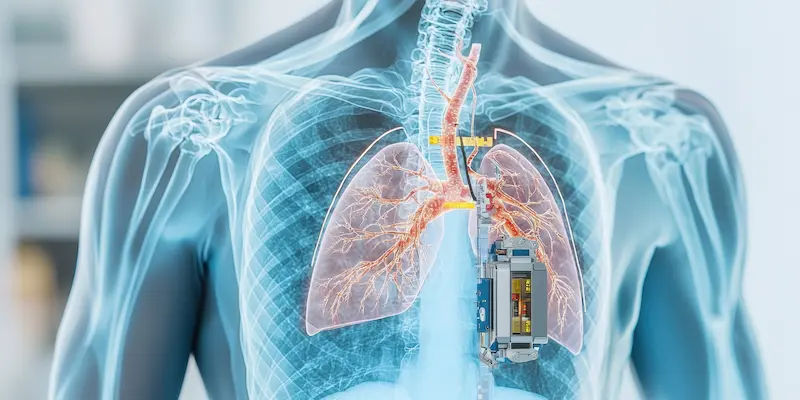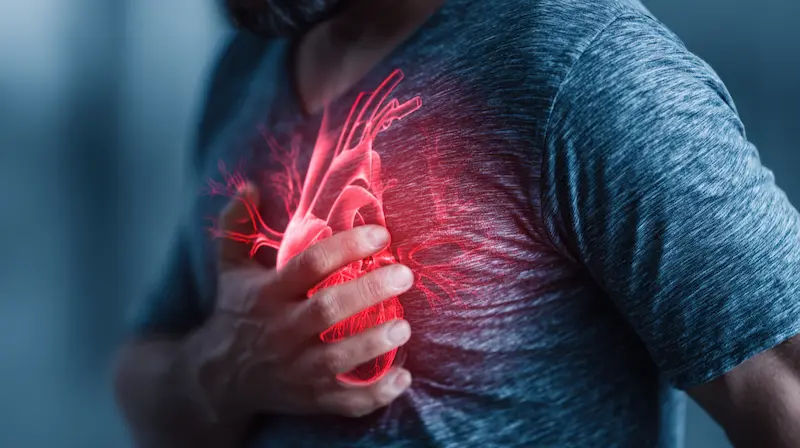- Female
- 48 Years
- 29/01/2025
Can left ventricular diastolic dysfunction be reversed? I'm really curious to know what methods or treatments are available to possibly improve this condition.
Answered by 1 Apollo Doctors
Left ventricular diastolic dysfunction can be managed and sometimes improved with lifestyle changes and medications. Some ways to help reverse left ventricular diastolic dysfunction include: - ACE inhibitors like Enalapril (5-20 mg once daily) - ARBs like Losartan (25-100 mg once daily) - Beta blockers like Metoprolol (25-100 mg once daily) - Calcium channel blockers like Amlodipine (5-10 mg once daily) - Diuretics like Furosemide (20-80 mg once daily) It is important to consult with your healthcare provider to determine the best treatment plan for your specific condition.
Dr. Shubham Suggests...
Consult a Cardiologist
Answered 04/07/2025
0
0


Ask Apollo
AI powered Health Chatbot
-
Understanding Left Ventricular Diastolic Dysfunction (LVDD)
- LVDD affects the heart's ability to relax and fill properly. Recognizing symptoms like shortness of breath and fatigue is crucial.
-
Possibility of Reversing LVDD
- Reversibility depends on factors like underlying causes and severity. Improvement is possible with appropriate management.
-
Lifestyle Modifications
- Focus on a heart-healthy diet, regular exercise, and weight management. Control blood pressure and blood sugar levels.
-
Medical Treatments
- Medications such as ACE inhibitors, ARBs, diuretics, and beta-blockers can help improve heart function and reduce symptoms.
-
Managing Underlying Conditions
- Address hypertension, diabetes, and coronary artery disease. Regular follow-ups with a cardiologist are essential.
-
Specialized Care and Monitoring
- Echocardiograms and other tests track progress. Consult a specialist for advanced therapies if needed.
-
Emotional and Supportive Care
- Maintain mental well-being and seek support. Utilize resources for patient education and support groups.
Recommended next steps
Consult a Cardiologist
Answered 20/08/2025
0
0
More Cardiology Health Queries
View allI've been having this pain in my left arm since yesterday, and it's really concerning me. I took a myotop p painkiller last night, but instead of getting better, the pain actually got worse this morning. I'm quite worried about what might be causing this. What should I do?
ecg and trop t are advised to the patient..
Answered by 1 Apollo Doctors
I had an angioplasty on February 14th, and they did it through my right arm. It's still hurting, and I can't stretch it properly. I've taken painkillers, but the pain just wont go away. What can I do about this?
Its common to experience pain and discomfort in the arm after an angioplasty, especially if the procedure was done through the arm. I recommend following up with your doctor to ensure there are no complications. In the meantime, gentle stretching and using a warm compress might help ease the pain.
Answered by 1 Apollo Doctors
I've been experiencing chest pain and headaches lately. I got an ECG done, and it came back normal, but I still don't feel right. I'm having trouble eating and walking properly too. Recently, I had milk and curd together, and I'm wondering if that could be causing these issues. Could you suggest any remedies or possible causes?
Intolerance to Spicy Food _Symptoms:_ 1. Burning sensation 2. Discomfort after consuming spicy food _Possible causes:_ 1. Acid reflux 2. Irritable bowel syndrome (IBS) 3. Inflammatory bowel disease (IBD) 4. Gastroparesis 5. Food intolerance _Doctors to consult:_ 1. Gastroenterologist 2. General Physician 3. Internal Medicine Specialist _Solution steps:_ 1. _Consult a doctor_: Schedule an appointment with a gastroenterologist or general physician. 2. _Diagnostic tests_: Undergo tests, such as endoscopy, colonoscopy, or blood tests, to determine the underlying cause. 3. _Dietary modifications_: Avoid spicy food and follow a bland diet. 4. _Medications_: Your doctor may prescribe medications to manage symptoms, such as antacids, acid reducers, or anti-diarrheal medications. 5. _Lifestyle changes_: Maintain a healthy lifestyle, including regular exercise, stress management, and adequate sleep. _Interim remedies:_ 1. _Ginger_: Try ginger tea, ginger ale, or ginger candies to help alleviate symptoms. 2. _Yogurt_: Eat plain yogurt to help neutralize stomach acid. 3. _Avoid trigger foods_: Identify and avoid foods that trigger your symptoms.
Answered by 1 Apollo Doctors
Disclaimer: Answers on Apollo 247 are not intended to replace your doctor advice. Always seek help of a professional doctor in case of an medical emergency or ailment.





